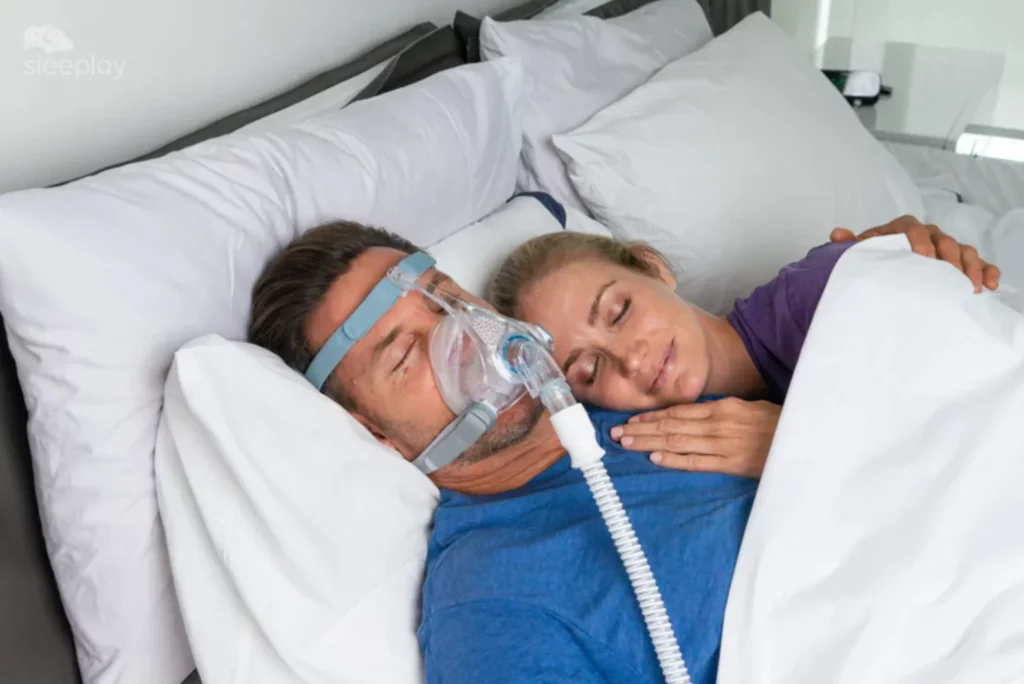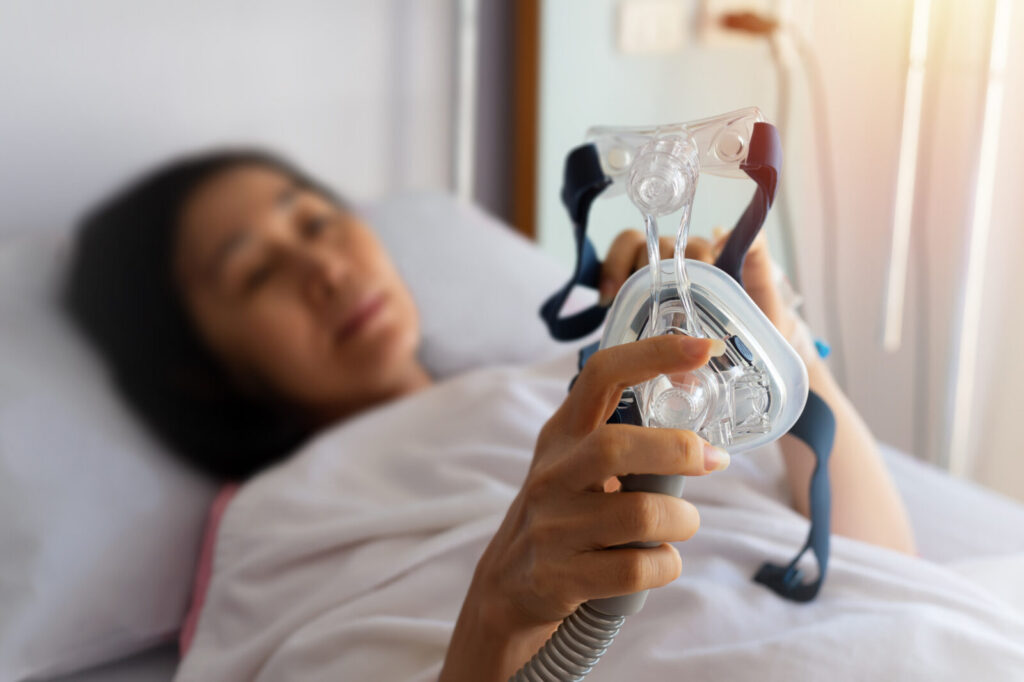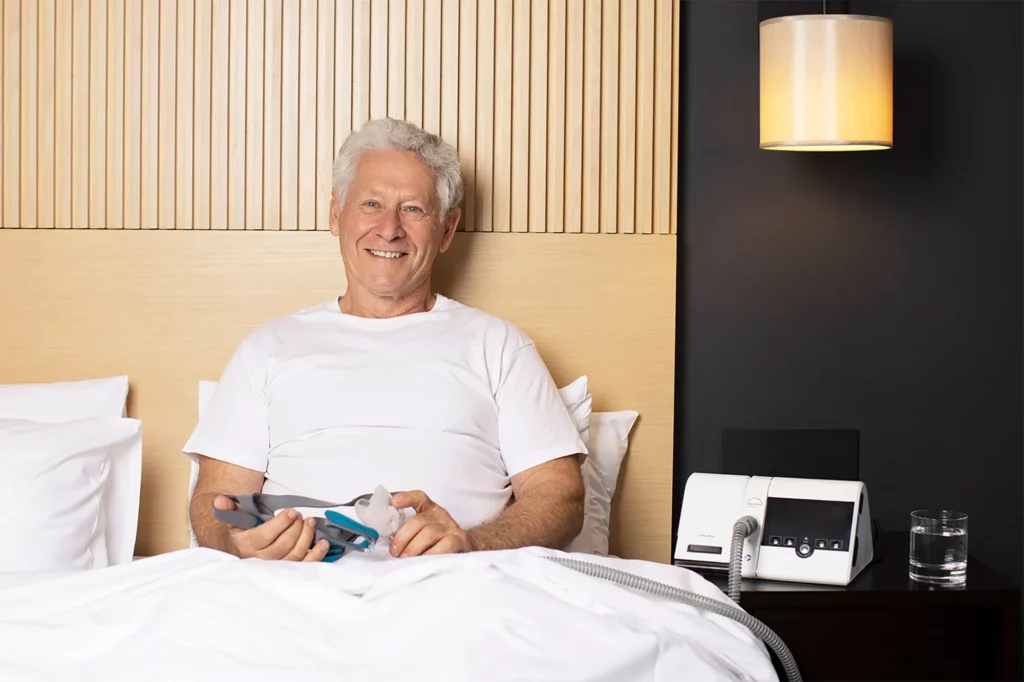Sleep apnea affects millions of Australians, disrupting their sleep patterns and potentially leading to serious health complications. This common sleep disorder causes repeated breathing interruptions throughout the night, with each pause lasting from a few seconds to minutes. These disruptions can occur hundreds of times per night, preventing sufferers from achieving restful sleep.
The health implications of untreated sleep apnea extend far beyond daytime fatigue:
- Increased risk of cardiovascular disease
- Higher likelihood of workplace accidents
- Impaired cognitive function
- Elevated blood pressure
- Greater chance of developing type 2 diabetes
Early diagnosis through sleep studies proves essential for effective management and treatment of obstructive sleep apnea (OSA). Fortunately, residents in major cities such as Sydney, Hobart, Adelaide, and Canberra can access bulk-billed sleep apnea testing services, making diagnostic procedures accessible without out-of-pocket expenses. For instance, bulk-billed sleep study services in Hobart, Adelaide, and Canberra are readily available.
These Medicare-covered sleep studies offer comprehensive evaluation of sleep patterns, breathing irregularities, and oxygen levels. Testing options include both home-based studies and in-clinic overnight assessments, depending on individual needs and circumstances.
Sydney’s network of bulk-billing providers includes established healthcare organisations such as Air Liquide Healthcare, ResMed stores, and various hospital-based clinics. These facilities work in partnership with sleep physicians to deliver professional diagnostic services aligned with Medicare Benefits Schedule (MBS) guidelines.
Understanding Sleep Apnea and Its Diagnosis
Obstructive Sleep Apnea (OSA) occurs when the throat muscles intermittently relax during sleep, blocking the airway and temporarily stopping breathing. These interruptions can happen multiple times per hour, disrupting the natural sleep cycle and reducing oxygen supply to vital organs.
Early diagnosis and treatment of sleep apnea can significantly improve quality of life and prevent serious health complications. The availability of bulk-billed sleep apnea testing Sydney makes professional diagnosis accessible to eligible patients through Medicare.

Common symptoms of OSA include:
- Loud, persistent snoring
- Observed pauses in breathing during sleep
- Sudden gasping or choking during sleep
- Morning headaches
- Excessive daytime sleepiness
- Difficulty concentrating
- Irritability and mood changes
Health Risks of Untreated OSA:
- Cardiovascular disease
- High blood pressure
- Type 2 diabetes
- Stroke
- Depression
- Increased risk of motor vehicle accidents
Diagnostic tests play a crucial role in confirming OSA and determining its severity. These tests measure various physiological parameters during sleep, including:
Read more at: Sydney Sleep Study Costs Explained Know Before You Book
- Breathing patterns and airflow
- Blood oxygen levels
- Heart rate and rhythm
- Brain activity
- Body position
- Eye and leg movements
Sleep specialists analyse these measurements to identify the presence and severity of OSA, enabling them to recommend appropriate treatment options. The most comprehensive diagnostic tool is polysomnography, conducted either at home or in a sleep clinic, providing detailed data about sleep patterns and breathing disturbances. Read more about treatment at https://continuingstudies.stanford.edu/courses/liberal-arts-and-sciences/cancer-biology-recent-developments-in-research-and-treatment/20244_SCI-102
What is Bulk-Billed Sleep Apnea Testing?
Bulk-billed sleep apnea testing is a diagnostic service covered by Medicare, where patients can undergo testing without having to pay any out-of-pocket expenses. In this system, healthcare providers directly bill Medicare for the full cost of eligible sleep studies.
Medicare Benefits Schedule (MBS) Guidelines for Sleep Studies:
- Item 12250: Home-based diagnostic assessment
- Item 12203: Laboratory-based overnight testing
- Item 12204: Follow-up studies for treatment evaluation
Types of Bulk-Billed Sleep Studies:
Home-Based Studies
- Portable monitoring devices provided for overnight use
- Recording of breathing patterns, oxygen levels, and heart rate
- Convenient testing in familiar surroundings
- Suitable for straightforward cases
In-Clinic Polysomnography
- Comprehensive overnight testing in specialised sleep laboratories
- Additional measurements including brain waves and muscle activity
- Direct supervision by sleep technicians
- Recommended for complex cases or specific health conditions
The eligibility criteria for bulk-billed sleep studies include:
- Valid Medicare card
- GP referral identifying specific sleep-related symptoms
- Meeting clinical requirements under MBS guidelines
- No previous sleep study within 12 months
Patients can access these services through various providers across Sydney, including hospital sleep clinics, specialist sleep centres, and approved home-testing facilities.

Step-by-Step Guide to Accessing Bulk-Billed Sleep Apnea Tests in Sydney
The path to diagnosing sleep apnea begins with proper medical assessment and referral. This comprehensive guide details each step of accessing bulk-billed sleep studies in Sydney.
Step 1: Initial Consultation and Referral
The first critical step involves booking an appointment with a general practitioner (GP) or sleep specialist. During this consultation, the healthcare provider conducts a thorough evaluation of sleep-related symptoms and medical history.
Key Symptoms to Discuss with Your GP:
- Loud or frequent snoring
- Observed breathing pauses during sleep
- Morning headaches
- Excessive daytime sleepiness
- Difficulty concentrating
- Irritability or mood changes
- Night-time choking or gasping
Medicare Eligibility Criteria:
To qualify for a bulk-billed sleep study, patients must meet specific Medicare requirements:
- Presence of at least three symptoms indicating sleep apnea
- Completion of standardised questionnaires (such as the Epworth Sleepiness Scale)
- Documentation of relevant medical conditions that increase OSA risk
The GP assessment includes:
- Physical examination
- Review of current medications
- Evaluation of risk factors:
- Body Mass Index (BMI)
- Neck circumference
- Family history
- Cardiovascular conditions
Upon determining eligibility, the GP provides a Medicare-compliant referral form. This document includes:
- Patient details
- Clinical history
- Relevant symptoms
- Requested type of sleep study
Important Documentation:
Patients should bring:
- Medicare card
- Photo identification
- List of current medications
- Previous medical reports (if applicable)
The referral remains valid for 12 months, allowing flexibility in scheduling the sleep study. Healthcare providers recommend maintaining a symptom diary leading up to the consultation to ensure accurate symptom reporting and appropriate test referral. Click here to find more about flexibility.
Step 2: Booking Your Sleep Apnea Test
With a valid GP referral in hand, patients can go ahead and book their sleep apnea test through various accredited providers across Sydney. The booking process may differ depending on the testing method chosen:
Home-Based Sleep Studies:
- Contact Air Liquide Healthcare or Sleep Solutions Australia directly
- Schedule a convenient date for equipment collection
- Receive comprehensive instructions for self-administered testing
- Book a follow-up appointment for equipment return
Hospital-Based Clinical Studies:
- St Vincent’s Hospital Sleep Laboratory accepts direct bookings through their sleep clinic
- Private clinics like ResMed require scheduling through their central booking system
- Waiting periods may vary between 2-6 weeks depending on availability
Key Provider Contact Options:
- Air Liquide Healthcare: Online booking portal or phone reservations
- Sleep Solutions Australia: Direct phone bookings with multiple Sydney locations
- ResMed stores: In-store appointments at various Sydney branches
- St Vincent’s Hospital: GP referral-based appointments through their sleep disorders unit
Most providers offer flexible scheduling options, including evening appointments for working professionals. The chosen facility will confirm Medicare eligibility and bulk-billing status during the booking process, ensuring patients understand any potential out-of-pocket expenses before proceeding with their sleep study.
Step 3: Conducting the Sleep Study at Home or Clinic
Home Sleep Study Process
- A portable monitoring device records vital sleep data through sensors attached to specific body areas
- Small sensors track breathing patterns, oxygen levels, heart rate, and body position
- The device includes a comfortable nasal cannula and finger probe
- Data collection occurs during normal sleep in the patient’s own bedroom
Setting Up Home Sleep Study Equipment
- Position the main recording device near the bed
- Attach the chest belt to monitor breathing effort
- Place the finger probe to measure oxygen saturation
- Insert the nasal cannula to track airflow
- Secure any additional sensors as instructed
In-Clinic Polysomnography
This method is typically conducted in a private room designed to replicate a comfortable bedroom setting. Advanced monitoring equipment records:
- Brain activity (EEG)
- Eye movements
- Muscle activity
- Heart rhythm
- Breathing patterns
- Blood oxygen levels
Sleep technicians monitor the study throughout the night, and additional sensors provide comprehensive data about sleep architecture.
For those considering an in-clinic sleep study, there are several options available across Australia, including sleep studies in Perth, Brisbane, Melbourne, and Sydney.
Duration and Monitoring
- Home studies typically require one night of recording
- In-clinic tests involve an overnight stay from early evening until morning
- Both methods provide sufficient data for accurate sleep apnea diagnosis
- Medical staff analyse the collected information to determine the presence and severity of sleep apnea
Step 4: Analysis of Results by Sleep Physicians
Sleep physicians use advanced analytical techniques to interpret the data collected during sleep studies. These specialists examine multiple parameters recorded throughout the night:
- Breathing patterns – Analysis of pauses, shallow breathing episodes, and breathing effort
- Blood oxygen levels – Assessment of oxygen saturation changes
- Heart rate variations – Evaluation of cardiac responses during sleep events
- Sleep position data – Correlation between position and breathing disturbances
- Snoring intensity – Measurement of sound levels and frequency
The analysis process typically takes 7-10 business days. Sleep physicians create detailed reports identifying:
- Presence and severity of OSA
- Apnoea-Hypopnea Index (AHI) score
- Other potential sleep disorders
- Impact on sleep quality
- Specific breathing event patterns
These findings are sent directly to the referring GP or specialist through secure medical channels. The reports include:
Diagnostic Summary
- Clinical interpretation of results
- Severity classification
- Recommended treatment options
- Additional testing requirements (if needed)
For Medicare compliance, sleep physicians must meet strict reporting standards and include comprehensive data analysis. This ensures patients receive accurate diagnoses and appropriate treatment recommendations based on their specific sleep patterns and symptoms.
Step 5: Follow-Up Care and Treatment Options
Post-diagnosis care involves comprehensive treatment planning tailored to each patient’s specific needs. The sleep physician typically recommends Continuous Positive Airway Pressure (CPAP) therapy as the primary treatment option for moderate to severe OSA cases.
CPAP therapy initiation includes:
- Professional mask fitting and equipment selection
- Practical demonstration of device usage
- Personalised pressure settings calibration
- Education on maintenance and cleaning protocols
Air Liquide Healthcare offers bulk-billed consultations for therapy guidance, providing patients with essential support during their treatment journey. These sessions cover:
- Addressing comfort concerns
- Troubleshooting equipment issues
- Monitoring therapy compliance
- Adjusting pressure settings as needed
Regular check-ups form a crucial part of OSA management. Sleep specialists recommend quarterly reviews during the first year of treatment to:
- Track symptom improvement
- Assess therapy effectiveness
- Review usage data from CPAP devices
- Make necessary adjustments to treatment plans
Many providers across Sydney facilitate remote monitoring through smart CPAP devices, enabling healthcare professionals to identify and address potential issues promptly. This proactive approach helps maintain optimal treatment outcomes while minimising the need for frequent in-person visits.
Bulk-billed follow-up consultations remain available through various Sydney clinics, ensuring continued access to professional guidance throughout the treatment journey. These appointments focus on long-term therapy success and sustained improvement in sleep quality.
Providers Offering Bulk-Billed Sleep Apnea Testing in Sydney
Sydney residents seeking bulk-billed sleep apnea testing can access services through several established healthcare providers:
1. ResMed Authorised Locations
- Multiple stores across Sydney metropolitan area
- Direct access to latest diagnostic equipment
- Integrated pathway from testing to treatment solutions
- Specialised sleep technicians on staff
2. Sleep Solutions Australia
- Comprehensive network of testing facilities
- Home-based and in-clinic study options
- Partnerships with leading CPAP manufacturers
- Extended operating hours for patient convenience
3. Hospital-Based Services
- St Vincent’s Hospital Sleep Disorders Clinic
- Royal Prince Alfred Hospital Sleep Unit
- Westmead Hospital Sleep Investigation Unit
- Medicare-approved diagnostic facilities
These providers maintain strong relationships with CPAP equipment manufacturers, creating seamless care pathways for patients. The strategic distribution of clinics across Sydney ensures accessibility, with locations in:
- Northern Suburbs
- Eastern Suburbs
- Western Sydney
- Inner West
- Southern Sydney
Many providers offer flexible scheduling options, including:
- Evening appointments
- Weekend testing sessions
- Home-based studies
- Remote monitoring capabilities
The choice between home-based studies and clinic visits depends on individual patient needs, medical history, and physician recommendations. Home studies suit patients seeking convenience, while clinic-based tests provide comprehensive monitoring under professional supervision.
Medicare Coverage and Private Health Insurance Considerations
Medicare coverage for sleep apnea testing follows specific MBS (Medicare Benefits Schedule) guidelines. Under these guidelines, eligible patients can access:
- 1 bulk-billed home-based sleep study per year
- Up to 3 in-laboratory sleep studies per year (if medically necessary)
Medicare Eligibility Requirements:
- Referral from a qualified medical practitioner
- Presence of specific sleep-related symptoms
- No previous diagnostic sleep study within 12 months
- Meeting age and health condition criteria
Private health insurance adds another layer of financial support for sleep apnea treatment. While Medicare covers diagnostic testing, private health insurance can assist with:
- CPAP machine purchase or rental costs
- Mask and equipment replacements
- Ongoing maintenance expenses
Cost Considerations:
Out-of-pocket expenses may apply for:
- Non-bulk-billed diagnostic services
- Additional sleep studies beyond Medicare limits
- CPAP equipment not covered by private health insurance
The level of private health insurance coverage varies between providers and policy types. Health funds typically include CPAP therapy under their higher-tier hospital or extras policies, with specific waiting periods and annual claim limits.
Medicare rebates for sleep studies range from $335.30 for a home-based study to $588.00 for a laboratory-based polysomnography test. These amounts represent the standard Medicare benefit, though actual patient costs depend on provider fees and bulk-billing availability.
Tips for Patients Preparing for a Bulk-Billed Sleep Apnea Test
Proper preparation enhances the accuracy of sleep apnea testing results. The following guidelines help patients achieve optimal testing conditions:
Pre-Test Day Preparations
- Maintain regular sleep patterns for several days before the test
- Avoid napping on the test day
- Follow normal daily routines to ensure typical sleep behaviour
- Keep a list of current medications to share with the sleep technician
Evening of the Test
- Skip caffeine, alcohol, and heavy meals 4-6 hours before bedtime
- Remove nail polish or artificial nails (affects oxygen monitoring)
- Pack comfortable sleepwear and personal items for clinic stays
- Bring prescribed medications if attending a sleep clinic
For Home-Based Studies
- Create a quiet, comfortable sleeping environment
- Ensure the bedroom temperature remains consistent
- Follow equipment setup instructions carefully
- Keep pets away from the testing area
For Clinic-Based Studies
- Arrive at the designated time (typically early evening)
- Bring personal toiletries and a change of clothes
- Alert staff to specific needs or mobility requirements
- Request additional pillows or blankets if needed
Testing Equipment Considerations
- Sleep sensors attach to specific body areas
- Breathing monitors fit around the chest
- Finger clips measure oxygen levels
- Small nasal tubes track airflow
These preparations support accurate data collection during sleep studies, enabling precise diagnosis and appropriate treatment recommendations.
Conclusion
The path to diagnosis starts with recognising potential symptoms:
- Loud snoring
- Daytime fatigue
- Morning headaches
- Difficulty concentrating
A GP consultation serves as the first step toward accessing bulk-billed sleep studies, whether home-based or in-clinic. Sydney residents have multiple testing options through providers such as Air Liquide Healthcare, ResMed stores, and hospital-based clinics.
Seeking medical advice at the first sign of sleep apnea symptoms enables prompt diagnosis and treatment initiation. With comprehensive Medicare coverage and established healthcare pathways, Sydney residents can access professional sleep health services without significant out-of-pocket expenses.
The journey to better sleep health begins with a simple GP appointment – take that vital first step today.

